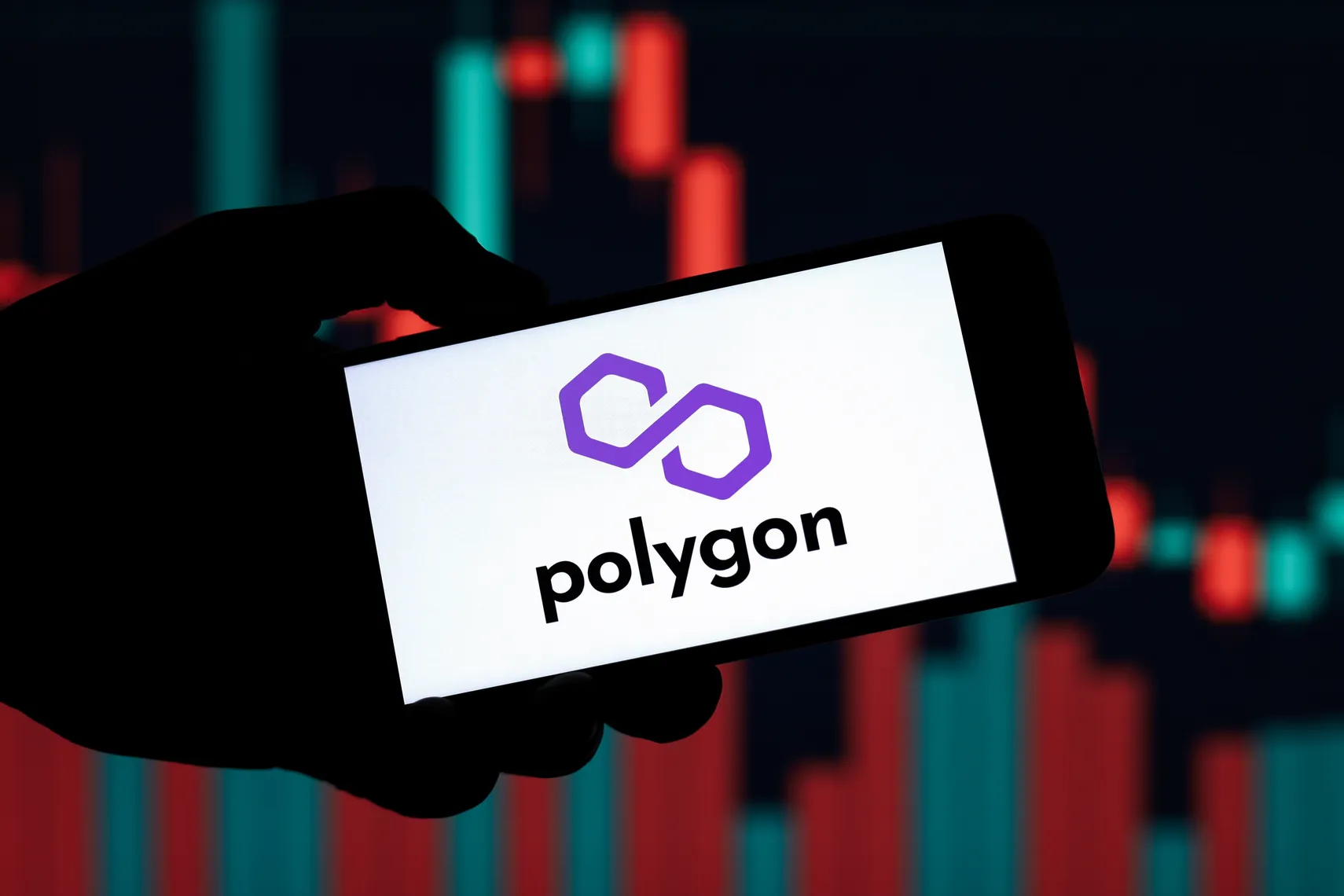Who owns the most Polygon (MATIC) crypto?
Polygon has undergone several changes since its launch, expanding from a single scaling project into a broader network that connects multiple blockchains. Its native token, POL, now sits at the centre of this ecosystem, supporting everything from validator rewards to governance participation.
Once known as MATIC, the project completed its token migration in 2025, introducing expanded staking and governance functions.
Past performance is not a reliable indicator of future results.
What is Polygon and how does it work?
Polygon, formerly the Matic Network, was established in 2017 by Jayanti Kanani, Sandeep Nailwal and Anurag Arjun, with Mihailo Bjelic later joining as co-founder. It operates as a Layer-2 scaling solution for Ethereum, designed to process transactions off-chain while using Ethereum as the settlement layer.
This model reduces congestion, improves transaction speeds and lowers gas fees – often below one cent – creating an efficient environment for decentralised applications (dApps).
Polygon functions as an additional layer on Ethereum rather than replacing it. Its modular architecture enables developers to build interconnected blockchains with higher throughput while retaining Ethereum’s security model.
Polygon’s evolution: from MATIC to POL
The rebranding from Matic Network to Polygon took place in February 2021. The token’s full migration from MATIC to POL was completed in 2025, introducing a unified token model that supports staking, governance and validator rewards across Polygon’s multi-chain network.
POL now underpins Polygon 2.0, the network’s latest phase, aiming to establish Polygon as the 'Value Layer of the Internet.' This includes upgraded validator roles, allowing stakers to earn rewards across multiple chains under a single token system.
POL tokenomics
As of November 2025, POL’s total and circulating supply stands at 10.53 billion tokens, according to CoinMarketCap. Unlike some cryptocurrencies, POL does not have a capped maximum supply beyond this issuance, which currently matches the circulating amount.
Staking remains essential for maintaining network security, with validators earning POL for validating transactions.
Past performance is not a reliable indicator of future results.
Who owns the most Polygon (POL)?
According to PolygonScan (November 2025), over 1.99 million unique accounts hold POL, with a combined balance exceeding 10.53 billion tokens. The top 10,000 addresses hold the majority, indicating a significant ownership concentration – an important factor when assessing network dynamics.
| # | Name tag | Balance | Address | % of Supply |
|---|---|---|---|---|
| 1 | Polygon: POL Token | 7.32 billion POL | 0x0000000000000000000000000000000000001010 | 69.00% |
| 2 | Anonymous wallet | 432.35 million POL | 0x4c569c1e541A19132AC893748E0ad54C7c989FF4 | 4.00% |
| 3 | Polygon: WPOL Token | 227.14 million POL | 0x0d500B1d8E8eF31E21C99d1Db9A6444d3ADf1270 | 2.00% |
| 4 | Anonymous wallet | 110.06 million POL | 0x79B4fd4011A1C52D2233b24750A12ca5Eec2Cf38 | 1.00% |
| 5 | Anonymous wallet | 77.15 million POL | 0x7D341e757f893e1a13D40370d0F6065ca9c4777E | 0.00% |
| 6 | Anonymous wallet | 68.02 million POL | 0x903283e42d434aC24D3CFe7ed5999B93232aeC50 | 0.00% |
| 7 | Anonymous wallet | 63.43 million POL | 0x68Bd76deeb37c239c5D6D57F50bf32257546f7f2 | 0.00% |
| 8 | Anonymous wallet | 45.31 million POL | 0x71956a1Cd5a4233177F7Bf9a2d5778851e201934 | 0.00% |
| 9 | Anonymous wallet | 28.75 million POL | 0x52Aa899454998Be5b000Ad077a46Bbe360F4e497 | 0.00% |
| 10 | Bitbank 2 | 24.38 million POL | 0x3727cfCBD85390Bb11B3fF421878123AdB866be8 | 0.00% |
Source: Polygonscan, 19 November 2025.
This distribution indicates that official Polygon addresses continue to hold most of the supply, largely due to validator operations, liquidity pools and ecosystem reserves.
The remaining tokens are spread across exchanges and individual wallets.
Ownership and whale concentration
The large proportion held in top addresses highlights the concentration of ownership within the network. While this supports liquidity and governance coordination, it can also increase volatility if major holders move or stake large quantities of POL at once.
Polygon’s ecosystem and partnerships
Polygon has maintained strong developer activity and enterprise adoption throughout 2025, with recent developments including:
- Partnerships with Warner Music Group (LGND Music), Flipkart, Disney, Coca-Cola and Instagram, reinforcing its role as a key blockchain for NFTs and consumer Web3 applications.
- Native staking and validator reward upgrades in 2025 to align with the POL token model.
- Collaborations in DeFi, gaming and sustainability, strengthening Polygon’s position as a major Layer-2 platform within Ethereum’s ecosystem.
These initiatives have helped maintain Polygon’s presence among the most actively used networks for Web3 and DeFi applications.
Key takeaways
- POL replaced MATIC as Polygon’s native token in 2025, marking a new stage in its evolution.
- The top 10 holders control around 76% of supply, mainly through Polygon’s treasury and validator addresses.
- Over 1.9 million accounts now hold POL, reflecting broad network participation.
- Polygon continues to expand through partnerships, staking enhancements and infrastructure upgrades.
Create an account Open a demo account
FAQ
How many Polygon (POL) holders are there?
As of November 2025, more than 1.99 million accounts hold Polygon’s POL token, with a combined balance of around 10.53 billion POL, according to PolygonScan. The top 10,000 accounts control most of the circulating supply, highlighting a high level of ownership concentration within the network. This distribution pattern reflects how the project’s tokens are structured across validators, institutional participants and exchanges, as well as individual holders.
Who created Polygon?
Polygon was founded in 2017 by Jayanti Kanani, Sandeep Nailwal and Anurag Arjun, with Mihailo Bjelic later joining as co-founder. Initially launched as Matic Network, it was rebranded as Polygon in 2021 to represent its broader, multi-chain approach to Ethereum scaling. The rebrand marked a shift from a single-chain framework to a Layer-2 network designed to improve Ethereum’s transaction capacity and developer experience.
Who owns the most Polygon (POL)?
The largest holder of POL is the official Polygon address, which holds about 7.32 billion tokens – roughly 69% of the total supply. Other major wallets belong to exchanges and institutional participants, including Bitbank and Binance, which contribute to the network’s liquidity, validator activity and token distribution. While this structure helps maintain operational efficiency and staking rewards, it also concentrates ownership among top holders, which can influence liquidity and price stability.